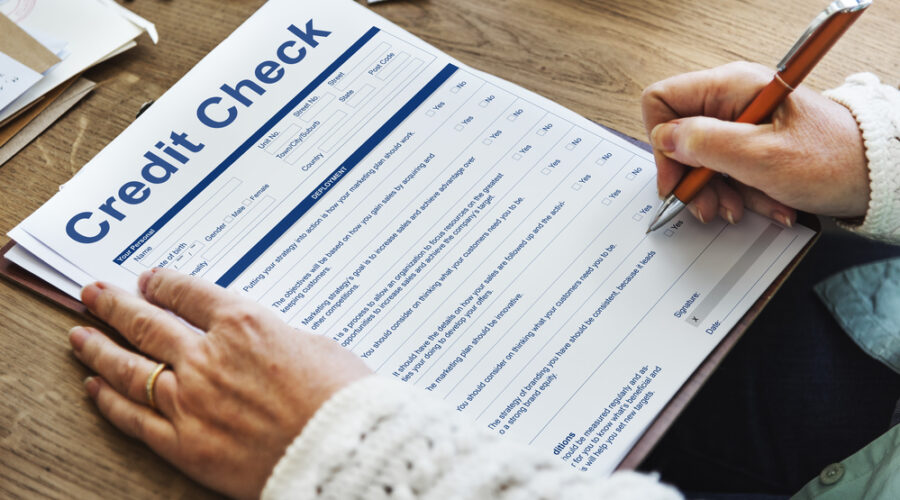7 Steps to Prepping Your Credit for Buying A Home
- Posted on Aug 28, 2019

As the Real Estate market heats up and more people are considering buying a new home, it’s crucial to know the role that your credit score plays in your ability to secure a mortgage. Many conventional mortgage lenders will usually want a FICO score of at least 720 or in some cases 740, but those with a score above 520 may still be able to qualify for a FHA loan.
Here’s an overview of a few steps you should take to prepare your credit when applying for a mortgage.
1. REVIEW YOUR CREDIT REPORT
A few months before you plan to apply for a mortgage, check your credit report for any issues. If you know you always pay your bills on time, you can check your credit two to three months in advance just in case you need to correct any mistakes or errors. If you know that you have late payments or other derogatory items on your report, yo should start checking yours six to nine months before applying to clear up those issues.
2. DISPUTE ANY INACCURACIES
If your credit report contains errors – you’ll want to file a dispute with the credit reporting agency. A report from the FTC earlier this year shows that roughly a quarter of the reports examined by the commission contained at least one error.
3. MAKE SURE YOU HAVE SEVERAL TRADE-LINES
Conventional loans require at least three trade-lines (any combination of credit cards, student loans, car loans, and so on) that have been active within the past 12-24 months. FHA loans require two trade-lines. It’s fine to have more, but if you have fewer, you won’t qualify for a mortgage. If you need to open additional trade-lines, getting a major credit card like a Visa or a Mastercard (not a store credit card) at least six months before you apply for a mortgage and using it for items you would buy anyway. Never charge more than 30 percent of your allowed limit, and pay it off in full every time you get your bill.
4. PAY OFF OUTSTANDING DELINQUENT ACCOUNTS
Like other lenders, mortgage underwriters want to ensure you’re a reliable borrower who will make payments on time, so having outstanding delinquent accounts on your credit report can drastically hurt your chance of being approved. Before you apply, consider paying off any delinquencies. Also try to lessen the impact late payments may have on your score by burying them with months or years of timely payments first.
5. AVOID OPENING NEW CREDIT LINES
Once you’re six months away from applying for a mortgage, stop opening new credit lines, as this can temporarily lower your score. The credit bureau doesn’t know how you’re going to handle that new credit, so because there’s that uncertainty, it’s a risk factor. Lowering your credit score is not worth that 10 percent discount you’d get from a department store for opening a new credit card.
6. REDUCE YOUR DEBT-TO-INCOME RATIO
Your mortgage underwriter could use your debt-to-income ratio, or the percentage of your income that goes toward paying debts, to evaluate how much additional debt you can handle and how much of a credit risk you pose. According to the Consumer Financial Protection Bureau, studies have shown that borrowers with a higher debt-to-income ratio are more likely to run into trouble making monthly payments. If you’re already using most of your income to pay off debt, lenders may not trust that you’ll be able to make your mortgage payments on time and either decline your application or penalize you with high interest rates.
If you want to lower your debt-to-income ratio, you can either increase your income or lower your debt payments. Making more money may seem easier said than done, but there are multiple ways you can do so. Think you’re doing great work? Consider asking for a raise. Have some extra time on your hands? See if you can make some money during your spare time. A little money could go a long way in lowering your debt-to-income ratio.
Also try to pay down your credit card balances. Not only can this help lower your debt-to-income ratio, but it could also improve your credit health.
7. DON’T SHUFFLE MONEY AROUND
When you apply for a mortgage, you’ll need to provide several months of bank statements for your checking and savings accounts. If you suddenly shut an account or have a large transfer from one account to another, then you’re going to have to paper-trail that whole account too. Leave your money and your accounts the same for at least three months. It won’t disqualify you but will make a paperwork hassle.
In summary, it may take a while to improve your credit. Huge score jumps don’t usually happen overnight, so it’s crucial to start working on your credit as soon as you start thinking about buying a home. Don’t pay more interest than you have to. By educating yourself and putting some effort into making your credit score the best it can be, you can actually save yourself a lot of money.
